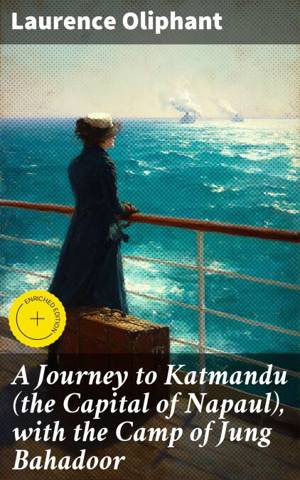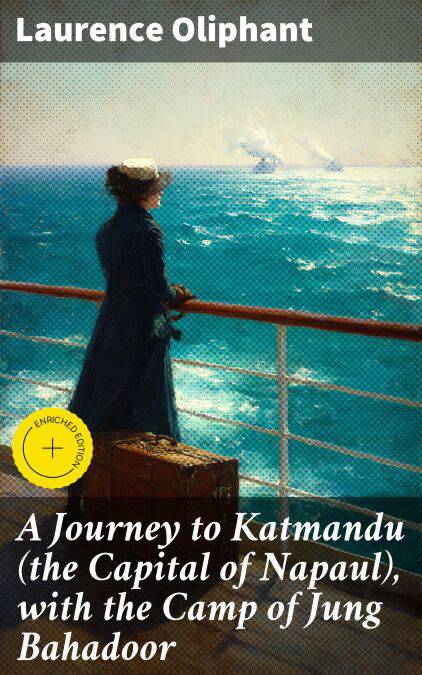
Bedankt voor het vertrouwen het afgelopen jaar! Om jou te bedanken bieden we GRATIS verzending (in België) aan op alles gedurende de hele maand januari.
- Afhalen na 1 uur in een winkel met voorraad
- In januari gratis thuislevering in België
- Ruim aanbod met 7 miljoen producten
Bedankt voor het vertrouwen het afgelopen jaar! Om jou te bedanken bieden we GRATIS verzending (in België) aan op alles gedurende de hele maand januari.
- Afhalen na 1 uur in een winkel met voorraad
- In januari gratis thuislevering in België
- Ruim aanbod met 7 miljoen producten
Zoeken
A Journey to Katmandu (the Capital of Napaul), with the Camp of Jung Bahadoor E-BOOK
Including a Sketch of the Nepaulese Ambassador at Home
Laurence Oliphant
E-book | Engels
€ 0,49
Omschrijving
In "A Journey to Katmandu (the Capital of Napaul), with the Camp of Jung Bahadoor," Laurence Oliphant presents an evocative account of his travels in the mid-19th century, intertwining personal narrative with rich observations of Nepal's diverse cultures and landscapes. Written in a style that reflects the Victorian fascination with exploration, the text combines vivid descriptions with keen sociopolitical insights, illustrating the complex dynamics of British-Nepalese relations during a time of imperial expansion. Oliphant's poetic prose and attention to detail not only paint a portrait of Kathmandu'Äôs breathtaking beauty but also critique colonial attitudes and the exoticization of Eastern cultures prevalent in his day. Laurence Oliphant was not only a writer but also a diplomat and adventurer, which deeply informed his worldview and his literary voice. His experiences in various geopolitical contexts, particularly his role in the British diplomatic mission to Nepal, provided him with unique insights into the region's ethos and its peoples. Oliphant'Äôs travels were not merely adventures but explorations of identity, culture, and the nuanced interplay between Eastern and Western worlds. This book is highly recommended for readers interested in travel literature, Victorian narratives, or the cultural history of Nepal. Oliphant'Äôs work offers a historical lens through which one can appreciate the complexities of a rapidly changing globe, making it an essential read for anyone seeking to understand the broader implications of exploration and cultural exchange.
Specificaties
Betrokkenen
- Auteur(s):
- Uitgeverij:
Inhoud
- Aantal bladzijden:
- 207
- Taal:
- Engels
Eigenschappen
- Productcode (EAN):
- 4064066242718
- Verschijningsdatum:
- 8/12/2019
- Uitvoering:
- E-book
- Beveiligd met:
- Digital watermarking
- Formaat:
- ePub

Alleen bij Standaard Boekhandel
Beoordelingen
We publiceren alleen reviews die voldoen aan de voorwaarden voor reviews. Bekijk onze voorwaarden voor reviews.









